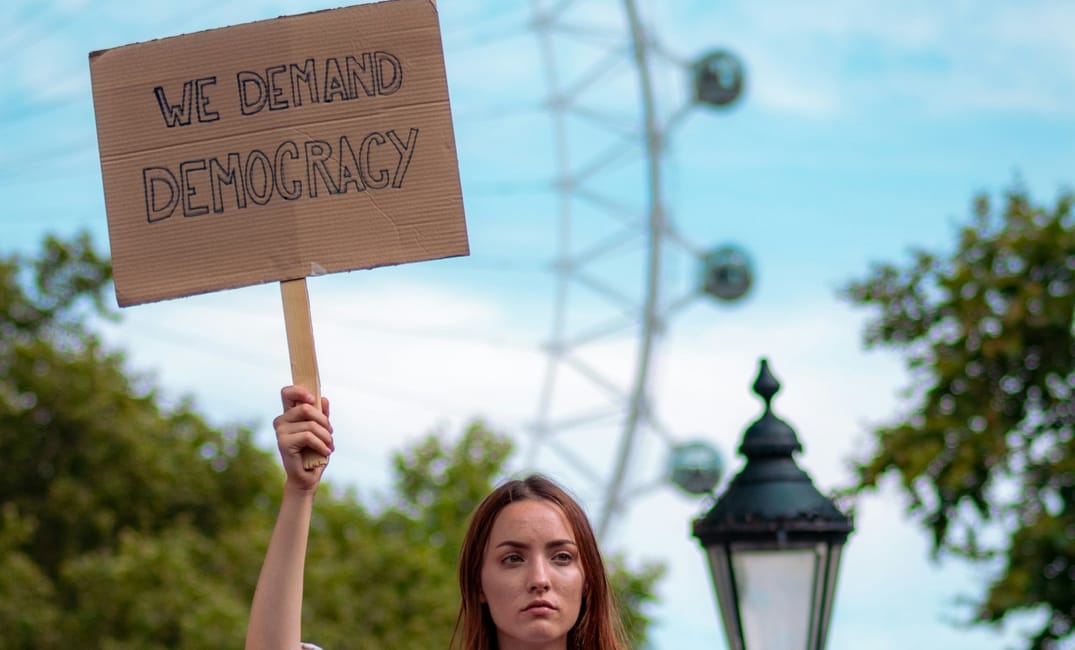Sam Gordon Webb
Naked Politics Blogger
On June 16th 2016, people made a choice; to leave the European Union and, in doing so, “take back control of our money, laws and borders”.
The result was a huge shock. Remainers expected to win, making the result a bitter pill to swallow.
Leave voters claimed that the outcome was definitive proof that people were fed up with “old men from Brussels”. The result, therefore, provided the government with a clear mandate to begin the processes of leaving the EU. “The people have spoken”, as Nigel Farage pointed out.
Remainers utterly disagree. They argued that people were lied to during the campaign. That prominent leave supporters made outlandish claims and manipulated figures in order to prop up their political interests.

British people were misinformed about the possible consequences of leaving the EU, as the Treasury’s own analysis now suggests. Many used the vote as an opportunity to challenge powerful elites without recognising the damaging consequences of that decision. It was, arguably, as much about venting fury at Conservative rule as it was about the EU.
And now we have talk of a “People’s Vote”, a second vote on the final Brexit deal between the UK and the European Union. Remainers argue that the will of British people, particularly younger ones, should be reheard at a time when their futures are in question. Also, people may have changed their minds after realising the far dimmer reality of leaving.
Brexiteers argue that a second vote would make a mockery out of democracy. The will of the British people was heard in 2016, and must not be ignored. Our sovereignty and, therefore, British values are at stake.
As Nigel Farage told Sky News recently, “To have another referendum before you have even implemented the first one would be ridiculous”.
style="color: #000000;">Democracy is a hard nut to crack. First of all, what is it? Where does it come from? And does it work? To answer these questions, we must look back in time.Democracy comes from the word “demos” meaning people and “kratos” meaning power. Together, the word encompasses “power of the people”.
If democracy is people power, then referendums are surely good things. People are given licence to voice their concerns, views and beliefs on important issues, shaping their lives and futures.
In this sense, referendums provide a voice to the voiceless and can, arguably, provide a safety valve for populist anger.
However, referendums are not perfect. The binary choice of “leave” or “remain” ignored the political complexities at stake. Leaving the EU is obviously not as simple as waving goodbye. It involves due process that could take months and years. QED!
Democracy is the same for everyone, but what constitutes democracy is certainly not. Supporters of the “People’s Vote” regard it as a chance to give people a final say on a deal they now know more about. Opposition for the People’s vote – Theresa May included – regard any second vote as a betrayal of the original vote, showing a blatant disregard for people who campaigned to leave and won fair and square.
So who’s right? Which side is more democratic? And quite clearly, these questions have no simple answer.
Aristotle described democracy as “the form of government in which the free are the rulers”. In this way, we control and defend ourselves; we make our own decisions and determine our own futures. Freedom, according to Aristotle, involves being a ruler. The decision to leave may not be wise, but at the very least, it was made without restriction.
The referendum was designed to solve, not create problems. Instead young people, like myself, now feel angry and frustrated. We feel let down by our elders. We feel powerless to prevent the disintegration of our own futures.
Democracy is what Abraham Lincoln described as “power of the people, for the people, by the people”. It feels like power was given to people who weren’t ready for it. It feels like a tissue of lies made a complex decision seem overly simplistic.
The biggest lesson from the 2016 referendum is that democracy is not a single machine; it’s a vast system of machines working at different levels and paces needing human attention in order to function properly. And if it functions, we all benefit. If it breaks, we all lose out.
It is, therefore, not only imperfect but imperfectible; its greatest legacy is not to solve our differences but to remind us that differences exist.
So, can we save our divided nation? Can we unite around one single idea that brings us all together, young and old?
Hopefully, yes. But who knows? One thing is for certain. We can disagree, but we cannot resent our fellow countrymen. If we do, democracy will crumble, and Britain will crumble with it.

